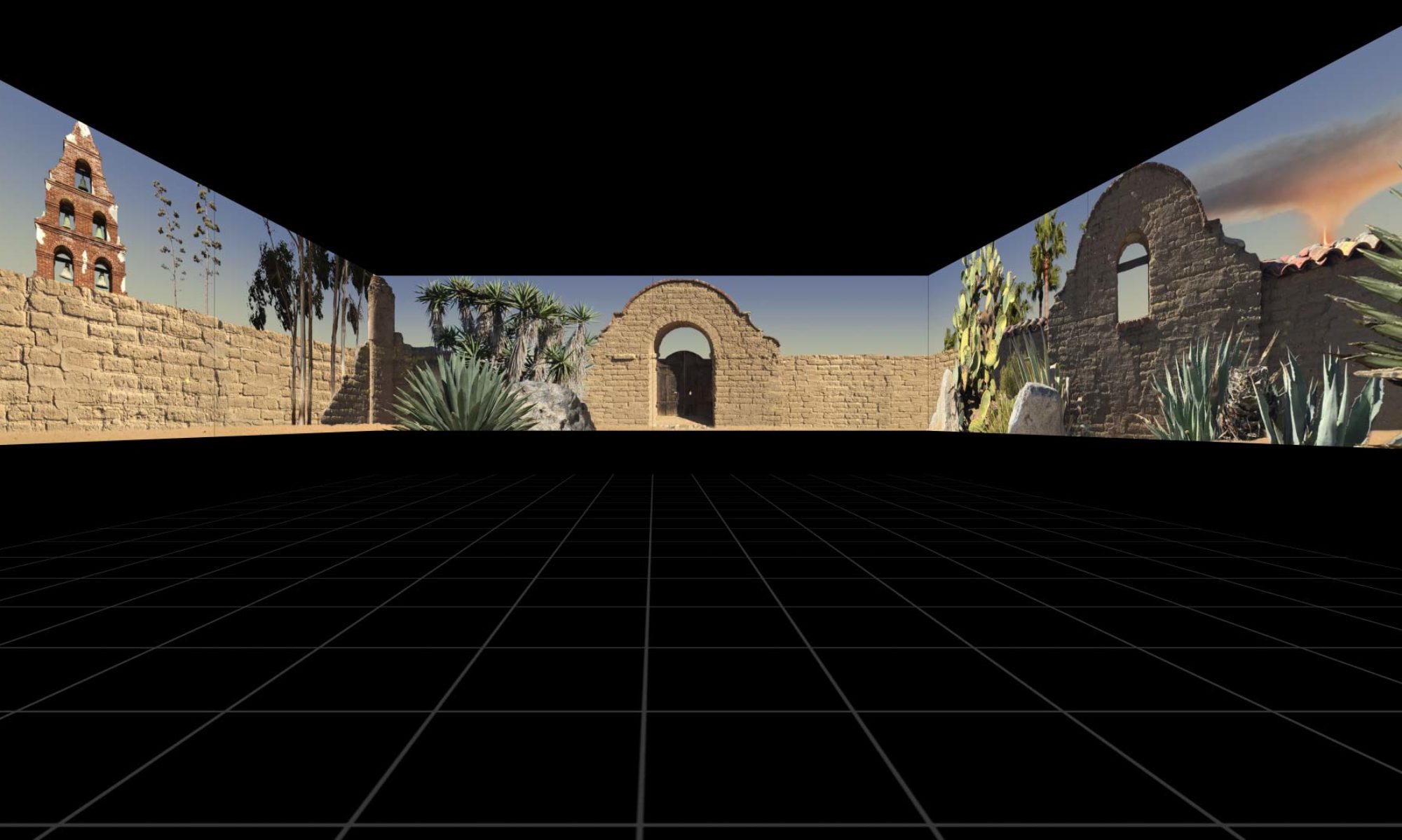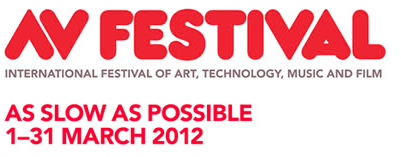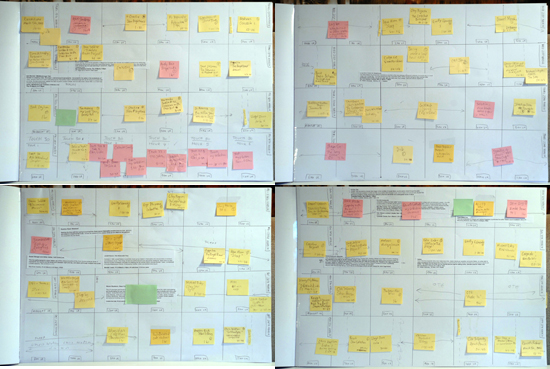We’re very pleased to have received a favourable review in The Wire Magazine (October 2012) of our forthcoming DVD (and digital download) ((oh, and a 7 inch single!!)) THE KEYSTONE CUT UPS.
We’ll be announcing more about this on 30th September.

Welcome to the only official site for People Like Us and Vicki Bennett
We’re very pleased to have received a favourable review in The Wire Magazine (October 2012) of our forthcoming DVD (and digital download) ((oh, and a 7 inch single!!)) THE KEYSTONE CUT UPS.
We’ll be announcing more about this on 30th September.
Alongside our posting of 25 New Titles for viewing and download on UbuWeb, we are very pleased to have compiled the UbuWeb Top Twenty for September 2012.
You can find it here
And on the UbuWeb homepage, right hand column.
http://ubu.com/resources/feature.html#plu
As many of you know, we have been sharing our work for free online since 2000, and on UbuWeb since 2003. We’re really pleased to announce that we have been updating our collection with Ubu and have added 25 more film and sound works.
You can find these at
UbuWeb: Sound
and
UbuWeb: Film
You can preview the titles in the browser, and also download.
People Like Us & Ergo Phizmiz will be releasing a 7″ single and DVD on Illegal Art in October, and a preview has been posted on WIRED’s website:
http://www.wired.com/underwire/2012/08/keystone-cut-ups-magic/
Since 1991 British artist Vicki Bennett has been an influential figure in the field of audio visual collage, through her innovative sampling, appropriating and cutting up of found footage and archives. Using collage as her main form of expression, she creates audio recordings, films and radio shows that communicate a humorous, dark and often surreal view on life. These collages mix, manipulate and rework original sources from both the experimental and popular worlds of music, film, television and radio. People Like Us believe in open access to archives for creative use. In 2006 she was the first artist to be given unrestricted access to the entire BBC Archive. People Like Us have previously shown work at Tate Modern, The Barbican, Sydney Opera House, Royal Albert Hall, Pompidou Centre, Maxxi in Rome and Sonar, and performed radio sessions for John Peel and Mixing It. The ongoing sound art radio show ‘DO or DIY’ on WFMU has had over a million “listen again” downloads. since 2003. The People Like Us back catalogue is available for free download hosted by UbuWeb.
Vicki recently completed the creation of a new live a/v performance called “Consequences (One Thing Leads To Another)“, which premiered at Transmediale in January 2013. She is now working on a new film for improvising musicians called “Gesture Piece”.
Not sure where to start because there’s too much? Know what you mean. Here’s where to start because there’s too much.
People Like Us
Excerpts from Genre Collage: The Look [2009-2010]
Excerpts from Genre Collage: The Sound of the End of Music [2009-2010]
Excerpts from Genre Collage: Ingrid and Tobor [2009-2010]
Excerpts from Genre Collage: DrivingFlyingRisingFalling [2009-2010]
People Like Us – The Remote Controller [2003]
People Like Us – We Edit Life [2002]
People Like Us – Nothing [2005]
People Like Us & Ergo Phizmiz – Mull of Kintyre [2010]
People Like Us – Music of Your Own [1999]
Vicki Bennett – Trying Things Out [2007]
People Like Us – Story Without End [2005]
Vicki Bennett – Skew Gardens [2008]
People Like Us – 2″00′ The Movie [2011]
Radio Boredcast and AV Festival are getting some good press at the moment, here is an Interview in WIRED.
WIRED interview http://www.wired.com/underwire/2012/03/slow-radio/
If something is boring after two minutes, try it for four.

Screened at
Drawing Towards Sound, University of Greenwich Galleries, London 2015
Exground Filmfest, Wiesbaden 2012
Sounds Like Silence An exhibition by Hartware MedienKunstVerein (HMKV) 2012
Lots of good press (and hilarious youtube mentality comments) coming in the UK press for AV Festival now. The 7th March Guardian has a very nice review, that includes Radio Boredcast.
http://www.guardian.co.uk/artanddesign/2012/mar/07/av-festival-as-slow-possible/print
The Schedule for Radio Boredcast, running from Noon on 1st March 2012 to Midnight 31st March is now up and is broadcasting online!
Listen at Basic.fm
If you have problems listening through a browser because you are at work etc, you can listen to the mp3 stream here – Just open iTunes, go to Advanced on the Menu bar and Open Stream and past it in.
http://www.avfestival.co.uk/programme/2012 – navigate using the Radio Boredcast link or by viewing each day of the AV Festival calendar in its entirety. Or follow the links below that take you to each day.
Meanwhile, subscribe to the Radio Boredcast Preview podcast – which runs from now until the end of March 2012. Clicking on this link will prompt your computer to open iTunes. This is normal, let it do so.

avfestival.co.uk / thepixelpalace.org
HERE’S THE FULL LIST OF PARTICIPANTS!
The full list of participants in Radio Boredcast with new and exclusive recordings and shows are Carl Stone, Pseu Braun & Alex Orlov, Touch, Rob Weisberg, Nicolas Collins, Andrew Lahman, Chris & Cosey, Jonathan Dean and Transmuteo, Cheese Snob Wendy, Kevin Nutt, Tony Coulter, Daniel Menche, Scott Williams, John Wynne, Chris Watson, Jem Finer and Longplayer, Tim Maloney, Ergo Phizmiz, Matmos, Dave Soldier, Charlie and Busy Doing Nothing, Andrew Sharpley, Nancy O Graham, Gwilly Edmondez, Anna Ramos & Roc Jiménez De Cisneros, Doug Horne, Irene Moon, David Suisman, Radio Web MACBA, Mark Gergis and Porest, Jez Riley French, Don Joyce, Carlo Patrao and Zepelim, Dorian Jones, Jason Willett, Zach Layton, Primate Arena with Alex Drool and Eran Sachs, David Toop, Dylan Nyoukis, Jared Blum and GiganteSound, Ed Pinsent, Adrian Philips aka Mr Rotorvator, Axel Stockburger, Craig Dworkin, Felix Kubin, People Like Us, Language Removal Services, Daniela Cascella, John Levack Drever, Joel Eaton, Clay Pigeon, Gudrun Gut, Charles Powne, Carl Abrahamsson, Andreas Bick and Silent Listening, Phantom Circuit, Patti Schmidt aka Wheelie Houdini, Leif Elggren, Ken Freedman, Erik Bünger, Douglas Benford, Christof Migone, BJNilsen, Andy Baio, Adam Thomas aka Preslav Literary School, Caroline Bergvall, Ken’s Last Ever Radio Extravaganza, Tapeworm, Brent Clough and The Night Air, Ilan Volkov, Nat Roe, Steven Ball, X41, The Long Now Foundation, Sharon Gal, Michael Ruby, Jonathan Leidecker, DJ/rupture, Gordon Monahan, Michael Cumella aka MAC, Lloyd Dunn and nula, DDDJJJ666, and Kenneth Goldsmith.
PODCAST
Subscribe to the Radio Boredcast free podcast now – it will arrive into your iTunes with previews of show highlights every 2-3 days through the month of March. Subscribe Now and receive a Welcome podcast.
Subscribe via iTunes here –
itpc://radioboredcast.podomatic.com/rss2.xml
Or through the apple store –
http://itunes.apple.com/gb/podcast/radio-boredcast/id501309800
ANDROID AND iPHONE APP
Radio Boredcast is hosted by BASIC.fm, and there’s a free Android and iPhone app that you can download now as one way to listen to the radio station while on the move. BASIC.fm already exists in it’s own form, and magically will change into Radio Boredcast throughout the month of March.
For iPhone – http://itunes.apple.com/us/app/basic-fm/id481267209?ls=1&mt=8
For Android – https://market.android.com/details?id=com.bandxmedia.basicfm

BLOG POST by Vicki Bennett about Radio Boredcast http://www.avfestival.co.uk/blog/2012/02/19/radio-boredcast-presents
INTERVIEW with Vicki Bennett about Radio Boredcast http://www.thepixelpalace.org/basicfm/radio-boredcast
REVIEWS
WIRED interview http://www.wired.com/underwire/2012/03/slow-radio/
The Guardian http://www.guardian.co.uk/artanddesign/2012/mar/07/av-festival-as-slow-possible/print
BACKGROUND ON RADIO BOREDCAST…
Time is a curious thing – on one hand we complain about being so busy we just don’t know what to do with ourselves, and on the other hand we literally don’t know what to do with ourselves and say we are bored. Given that we need more time, when we are not killing it, it is also strange that (in the western world) we are so obsessed with speed – the one thing guaranteed to make us miss out on the detail, complexity and depth of experience in exchange for thrills and illusions of gaining something, that “something” often being more time. It is with these thoughts that I’ve entered into curating “Radio Boredcast” for AV Festival 12.
The first thing that struck me is that 744 hours is quite a long time. 744 minutes is a long time. Four weeks lined up in iTunes is a long playlist. It would be easy to think about how to fill this up as quickly as possible, but that’s Speediness rearing it’s rather worn out head again. “Slow” is subtle, it avoids the obvious, the short cut or the first hurdle; it is to start at the end of the race and see where we are running to. The only thing to be stretched is the concept of what Slow actually might be – the only aim to make it an engaging, entertaining and unpredictable a listening experience as possible.
Radio Boredcast has and impressive list of participants, providing content in the form of specially produced new and unpublished works, playlists and regular freeform radio shows, field recordings, interviews and monologues and much, much more.
While listening, you may hear adults talking for hours about slowness and children complaining about how boring it all is, thematic freeform radio shows, mathematical experiments and time-based compositions, field recordings of nature’s cycles and underwater rumblings, musical meanderings through memory and inner worlds of sleepless nights; across landscapes and back through time, discovering the world of ritual and speaking in tongues by way of babbling poets and bubbling brooks full of musical elephants, a voyage into deep concréte through art gallery toilets, scientific discussions on insects and evolutionary biology, ultrasound recordings of bats, journeys through very slow cheese, soundscapes from faraway lands with long phonecalls full of language removal, testcard music and shipping forecasts, vast sweeping summaries of the entire history of everything, and then… Silence. Outside of this will be programming of thematic playlists all the way through “Acconci” (Vito) to “Zzz…” (Leif Elggren & Thomas Liljenberg)
Here’s how the schedule began… on post-its in an A2 notepad.

UPDATE (June 2012): Radio Boredcast is now archived at WFMU:
www.wfmu.org/playlists/ZZ
Vicki Bennett has written the Collateral Damage page for the March edition of The Wire magazine.
http://thewire.co.uk/issues/337/
It is also available to read in The Wire’s online archive:
http://thewire.co.uk/in-writing/essays/collateral-damage_vicki-bennett

Vicki will also speak at Off The Page in Whitstable on 25th February 2012 as part of a panel based around the same column.
http://www.peoplelikeus.org/2012/off_the_page_the_wire_sound_and_music.html
In the early 2000s, increased bandwidth allowed recombinant artists to enter the gift economy. It’s a freedom we should defend at all costs, argues Vicki Bennett aka People Like Us
In 1999 I bought my first fast computer – and although it was dying to do speedy things, I was on dial-up, reduced to a crawl when it came to information retrieval. Logged into file sharing communities, I’d sit in the chat and watch people posting files that would take me a day to download, so I’d just read about them. Then I’d go to the WFMU website and try to stream the station and just get blurts and gaping silences. Then I’d visit archive.org and look at all the wonderful synopses for Rick Prelinger’s films, which were too large to access. It wasn’t long, however, before affordable broadband reached my area of London. Then everything changed. Forever.
The biggest improvement that broadband has brought me is access to previously inaccessible content, which I can then work with as raw material. In 2000, Internet Archive founder Brewster Kahle asked Prelinger to share his films online, for free. Although Prelinger was initially wary of this suggestion, he did so. By making these films available in good quality and continuing to sell the same footage in high quality, not only did he advertise his commercial archive, but also this generous act had a revolutionary effect on artists like myself who utilise already existing footage to make new works. Before this, I’d approached regional and national archives and either found a total lack of interest in collaboration, or a bigger interest but lack of manpower to liaise in realising the project. The advent of broadband made it possible to share on a massive scale. It changed my life.
With more people producing and distributing for themselves, the dynamic has changed and the focus shifted away from the middleman towards the producer. Since 2000, albums I’ve made with Ergo Phizmiz and Wobbly were created remotely, as a result of being in different parts of the world, through ftping multitracks. Many are surprised to hear that such methods could be successful, but working alone on site, and in collaboration online, can be a winning combination. Once completed, it can be shared online. If you work with the right people you’ll reach thousands of listeners. In turn, some of those listeners will be working in areas where they can offer concerts, commissions, or play you on their radio show. This is called the Gift Economy.
Audio content both for People Like Us and my radio show has mainly been sourced online. This heightened access increased my musical knowledge massively, feeding into my creative process, the palette increasing in size and colour. Access to and hosting by curated servers like UbuWeb has given a wider context to my work, where I’ve found aesthetic similarities to genres that in turn inform my practice. As well as curated music servers, there are now thousands of dedicated, knowledgeable music blogs. A web search for an obscure artist heard on the radio will take you to a blog telling you all about them, sharing out-of-print material, with tags linking to related areas. An adjacent column will have links to 25 other websites and radio stations with similar interests. There then follows a wonderful odyssey into hidden and often forgotten sonic worlds. This is very different from looking in an Oxfam record bin.
As well as being able to access specialist audio and moving images, broadband also made it possible to hear radio on a worldwide scale. Although analogue radio has long served the world over certain wavelengths for larger radio networks, it was an amazing experience to hear smaller radio stations like WFMU, where, as a result, I have been a DJ since 2003. WFMU archives its past shows forever, making them available for free listening. When Googling a little-known artist, the chances are the results will include a WFMU playlist. This helped make the local New Jersey radio station a global concern – and now, more people listen online than through radio receivers.
With this enhanced access in the past decade, one is far more likely to hear more less often than less more often. This shifts the way one listens, as the process becomes more like a ‘one-off’ experience of something that is ‘live’ or ‘unrepeatable’, almost like it was before the age of recording. Cassette sharing has been replaced with links and playlists. The physical experience of holding something as a treasured possession is lost, or it would be if you’d put your laptop or iPhone down. The loss of the artefact in favour of info.txt and jpegs is unfortunate; however, I recall many hours spent in record stores only looking at the covers.
In Klaus Maeck’s 1983 film Decoder, Genesis P-Orridge states, “Information is like a bank. Our job is to rob that bank.” These were prophetic words. Freedom of the internet is under threat – over access to and ownership of information. Although I don’t see sharing and creatively transforming information and content as plundering, I do believe the ‘banks’ have the potential to lock up a lot that should rightfully be ours. When Megaupload was recently shut down for facilitating copyright infringement and money laundering, approximately 150 million users instantly lost access to their files. Carpathia and Cogent, Megaupload’s hosting companies, have been told by the US authorities that they are free to delete the content, but unlike the US government’s approach of throwing out the baby with the bathwater, Carpathia has put together a website (megaretrieval.com) with the Electronic Frontier Foundation (EFF) so that affected users can assess the scope of the issue and try to retrieve their data. My focus here is not on the legal aspect of this case, but on how further damage occurs when a heavy-handed approach is taken in dealing with such a situation – millions of users were innocently implicated in this case and the collateral damage is immense.
We may be at the stage where many people don’t even wish to download, and are just happy to listen to Spotify or Last.fm, and much future content will only be on servers, with smaller domestic hard drives. While advocating the sharing ethic, I’m wary of ‘the cloud’ – servers looking after everything for you. Megaupload was a ‘cloud’ – it remains to be seen what happens to users and their data when things go wrong. Intellectual property is a complicated issue with many grey areas, which need to be assessed on an individual basis. If there is the opportunity to throw out the grey with the black, this is often done. My main concern over the cloud is that this ‘automatic and effortless’ experience of access may be improved upon by eventually narrowing down results to only mainstream or sponsored content; in the worst cases, people may find themselves simply shut out.
I can’t over-emphasise how much broadband has improved my life, and although I worry about the control of this ‘free’ space, I remain optimistic of seeing blue sky between the clouds. At present, I am curating and programming Radio Boredcast, a month long online radio station for the AV Festival. All content and submissions reached me by way of that modem sitting next to the telephone socket, which then flew across the living room into my computer. I don’t know how that happens, but I’m glad it does.